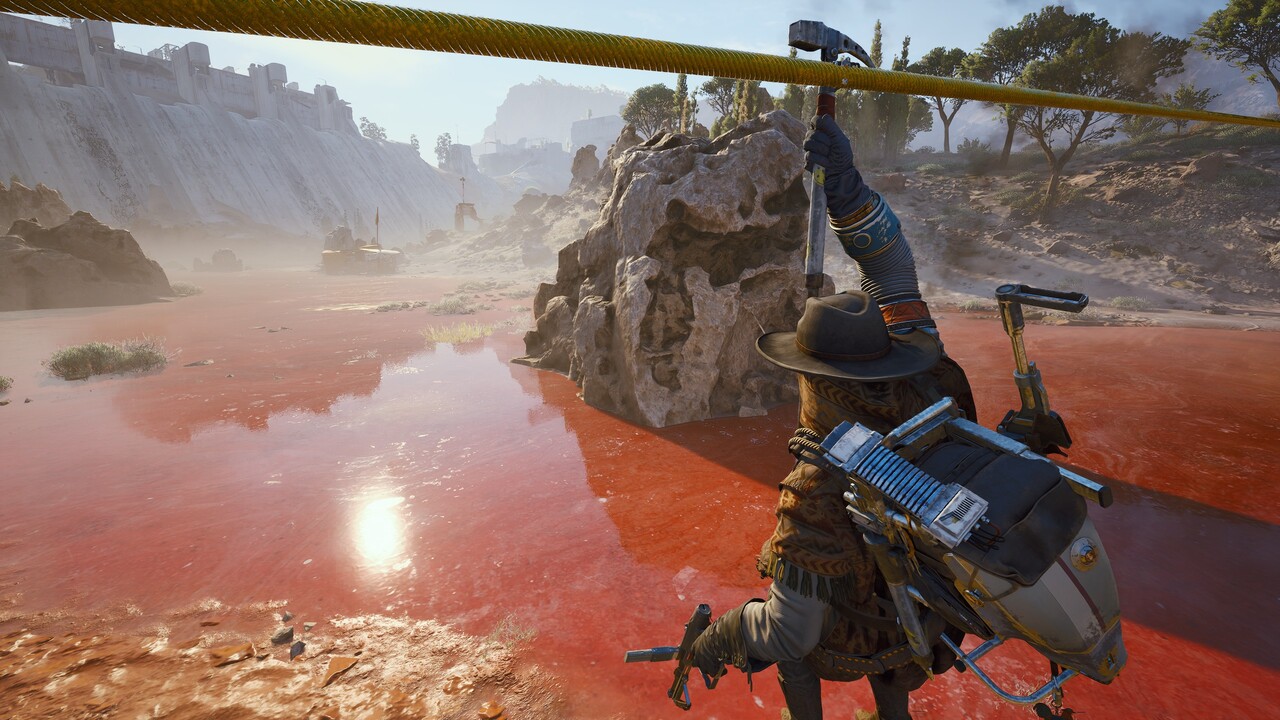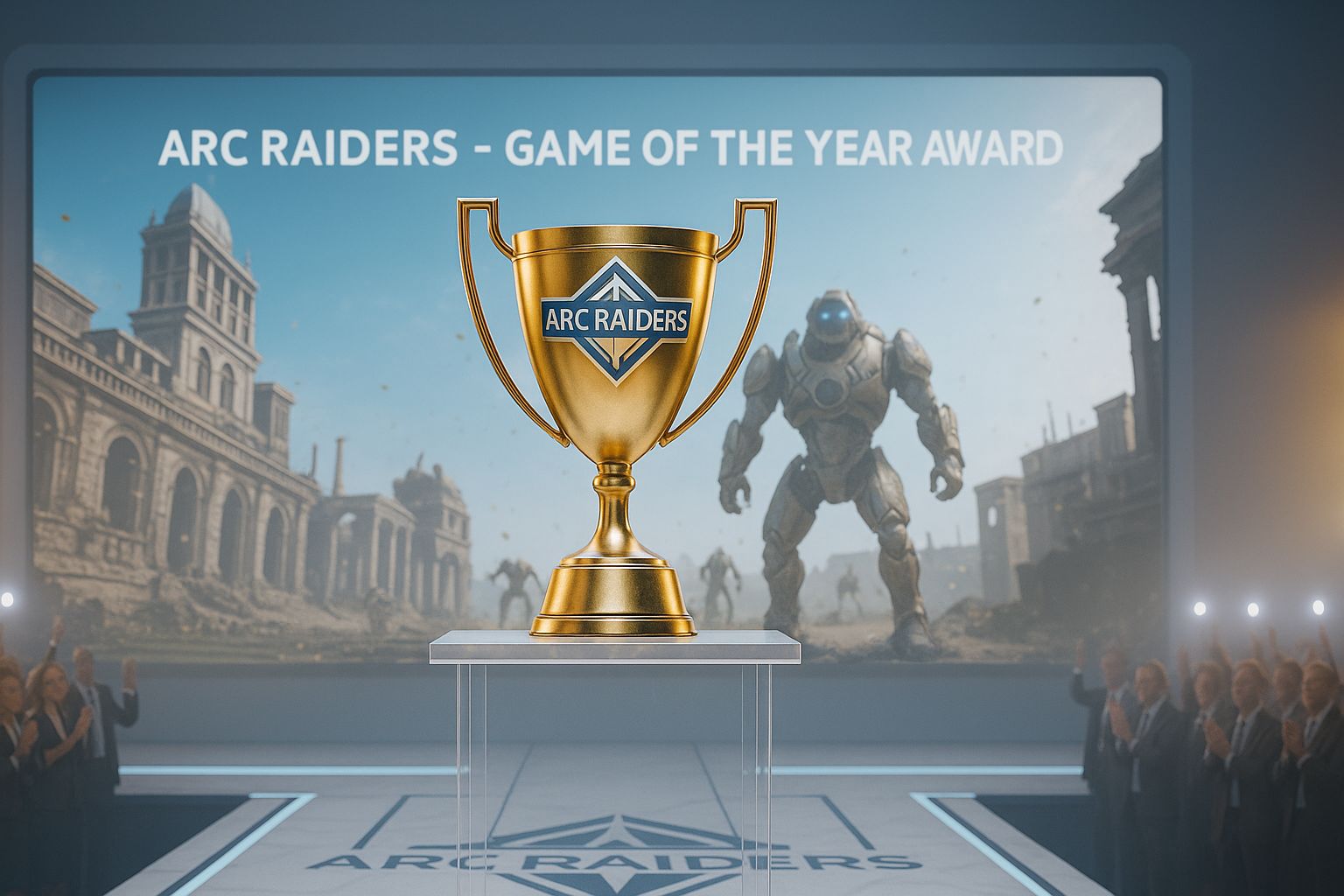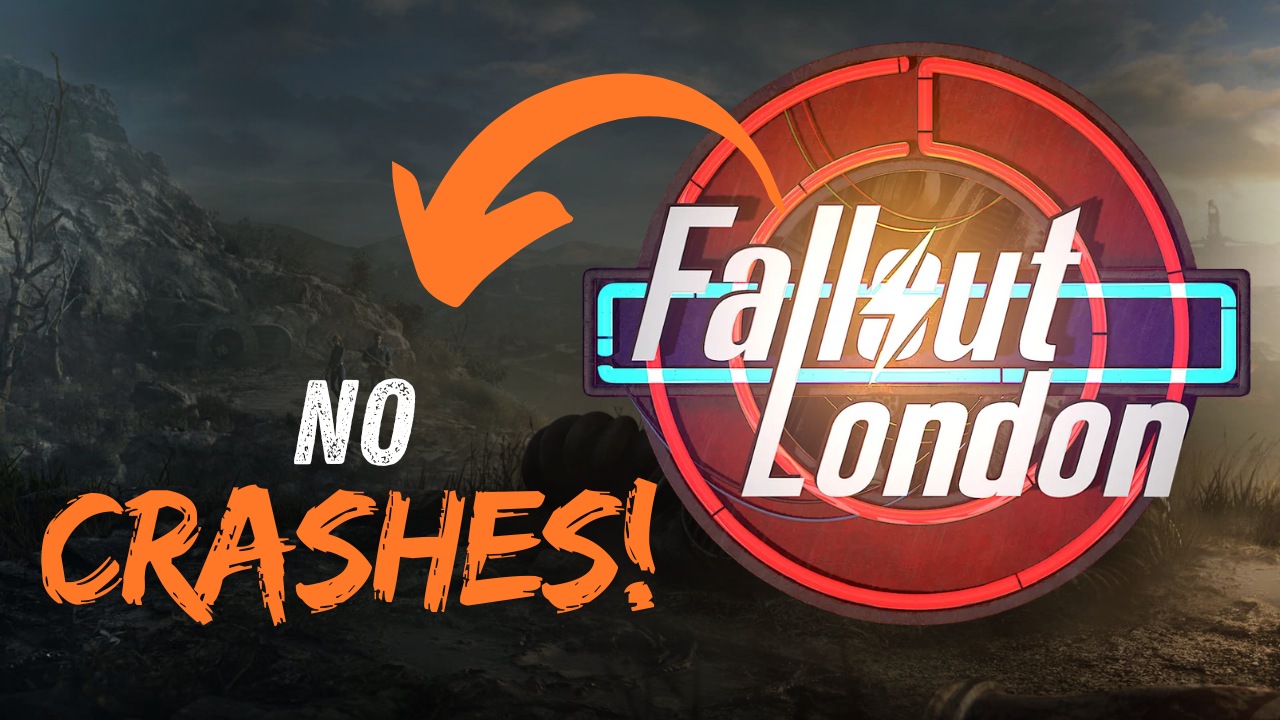Arc Raiders recently got into trouble after the website Eurogamer gave it a very low score. The review said that even though the game plays well and looks good, its use of AI for character voices was “completely wrong.”
The eurogamer reviewer felt this was such a big problem that he couldn’t recommend the game at all. He treated the use of AI as a moral line that was more important than how fun the game was to play.
After this review was published, many game developers, writers, and people on social media joined the conversation. Some voiced his opinion and recommended others to avoid the game, while other side supported arguing that it would mean backing a change in the industry that needs to stop completely.
Later the same talks of the game changed from being a “solid shooter” to an “example of AI abuse.” This leads to a question: could this bad press hurt the game’s chances of winning any gaming related awards?

Nexon’s CEO Says Use AI Or Fall Behind
Nexon CEO Jung Hun-lee defended Arc Raiders’ AI use without holding back.
His comments show why this fight probably won’t stay limited to one game. In a recent interview, he said AI has “improved efficiency” in making games and running live service operations. Quality has been “steadily rising” because of it, he claimed.
More boldly, he said it’s now “important to assume every game company is using AI.” The real question isn’t whether to use the technology, but how to use it to stay competitive.
His point is clear: AI lets Nexon keep studios like Embark smaller and easier to manage. They don’t need huge teams and massive budgets just to meet content needs. In other words, AI helps them maintain reasonable project size and cost, not replace human creators entirely.
That detail gets lost in the public anger, where AI often gets treated as all-or-nothing – either totally “100% human-made” production or worthless “AI garbage.”
AI As An Unstoppable Force
AI’s usage in game development to historic technology shifts like gunpowder or cars. Once discovered, refusing to use it just puts you at a disadvantage. Nations that ignored gunpowder quickly lost battles.
Studios that won’t adopt AI in any form will struggle to compete in speed, scale, and cost. Nexon’s CEO echoes this by suggesting that avoiding AI isn’t noble – it’s strategically foolish when everyone else uses similar tools.
This doesn’t mean we fully support AI usage or wants it replacing human work. Instead, there’s a call for practical balance that matches reality. Use AI for boring, repetitive tasks that slow development while keeping human creativity at the center.
In that view, Arc Raiders represents a messy but unavoidable step in a bigger change rather than some uniquely evil case – which makes the intense backlash feel less like ethics and more like picking an easy target.
Gabe Newell Talks About AI’s Future
Adding more support to the “unavoidable” argument is Valve’s Gabe Newell, who has also talked about AI’s impact on creative fields.
Newell predicts AI will be “ten times as important” as CGI was. He warns that filmmakers who don’t learn to use it will “really struggle” soon. He goes further, suggesting that non-programmers using AI to boost their skills could become more effective than developers with ten years of traditional experience.
For Newell, the key isn’t just using AI blindly, but understanding the methods and thinking behind machine learning to use these tools better.
The message is clear: creators and studios that understands AI will succeed, while those who reject it completely will get left behind. This prediction sharply differs from all the calls to blacklist Arc Raiders over its limited AI use.
AI Is Already In “Acceptable” Games

One of the sharpest points we would like to highlight is selective anger. Any game using AI automatically gets zero-out-of-ten from them, calling Arc Raiders unplayable on principle.
Yet that same person was shown proudly holding a Cyberpunk 2077 art book, despite CD Projekt Red openly saying they used AI in the Phantom Liberty expansion.
In Cyberpunk’s case, AI recreated lines for a character whose voice actor had died, with the actor’s family’s permission, so the character’s role could be finished respectfully.
Honestly speaking, this was a good thing and an example of ethical AI use – but it’s still AI in a major, widely praised game. If the standard really is “zero out of ten for any AI,” then praising Cyberpunk while attacking Arc Raiders becomes hard to justify without being hypocritical.
What Arc Raiders Actually Uses AI For
Lost in much of the discussion is what Arc Raiders actually does with AI. According to Embark and Nexon, human developers created the world, enemies, systems, guns, sound design, and overall experience. AI is limited to certain voice lines for player “raiders” and some random NPC chatter in the hub.
The goal is giving players an option to communicate through generated voice lines instead of using their real voices in proximity chat.
Now I would like to highlight practical reasons a player might prefer this: a woman avoiding unwanted attention from strangers, or a child who doesn’t want adults knowing they’re a kid in public lobbies. In that context, the AI voice system becomes a privacy and safety feature as much as a cost-saving measure.
In actual matches, you mostly hear real player voices, with AI voice showing up mainly for simple lines like “Don’t shoot.” It’s a small slice of the overall experience rather than its defining element.
Commercial Success Despite Moral Panic
While social feeds fill with boycott calls, Arc Raiders itself appears to be doing well with players. Embark and Nexon reported over 700,000 players online at once across all platforms and more than 4 million copies sold so far, at a price around 50 Canadian dollars.
For a mid-priced game focused on a specific team-based extraction style rather than a full premium blockbuster, those numbers represent major success.
Arc Raiders fits a growing pattern: games that launch at lower prices, focus on what they do well, and deliver strong value will increasingly define the market.
Titles like Claire Obscur, Silksong, and Hades 2 are mentioned as similarly not being sold at the highest price levels while still being game-of-the-year contenders.
In this story, Arc Raiders should be celebrated as an example of smart scope and pricing – but instead, it risks being remembered mainly for a four-out-of-ten ethics-driven review.
Developer Pile-On And Marketing Moves
The backlash hasn’t just come from journalists and influencers. Other developers seized the moment to publicly distance themselves from AI.
Necrosoft Games, the studio behind Demon School, responded to the Arc Raiders discussion by saying they “would rather cut off our own arms” than use AI and calling their game “100% human-made.”
Another team behind Unbeatable bragged that every frame, sound, line of code, visual asset, chart, and line of dialogue was made by humans with zero AI involvement.
Posts like these implicitly frame Arc Raiders as practically robot-made, erasing the extensive human work that went into its art, design, and systems. We see this as cynical branding, where studios use Arc Raiders as a contrast to market their own games as morally pure. The talk paints a picture of a development community quick to throw one of its own under the bus if it means looking better.
Jonathan Blow’s Take On The Score

Not every developer joining the discussion is attacking Arc Raiders. Jonathan Blow, creator of Braid and The Witness, reacted to Eurogamer’s four-out-of-ten score by calling it “brutal.”
He reminded people that game reviews historically work on a seven-to-nine scale. In that informal scale, a four is usually saved for games so broken they barely start or are filled with game-breaking bugs.
Blow suggested a more “useful and interesting” piece would analyze what Arc Raiders actually achieves with its voice generation and how it pushes boundaries of what games can do. Instead, nobody seems interested in writing that article, he noted.
This cuts right to the heart of the awards question: will juries reward innovation that makes people uncomfortable, or side with the outrage?
Will AI Use Kill Its Award Chances?
All of this comes back to the main question: does Arc Raiders’ use of AI doom its chances at awards and critical recognition, even if players keep enjoying it?
On paper, the game has much of what juries usually like – distinctive retro-future art style, strong combat, clear identity, fairer price, and responsive live service updates.
Yet the story forming around it is dominated by AI anger, a “brutal” ethics-driven score from a major outlet, and public statements that it’s zero-out-of-ten on principle.
I suggests that while the backlash probably won’t hurt Arc Raiders commercially, it may poison the well for awards. If a growing portion of critics and developers frame any AI use as an ethical red line, juries will face social pressure to avoid “supporting” such a game, regardless of its design quality.
In that sense, Arc Raiders may become the first high-profile test case of whether AI use is enough to get a game quietly blacklisted from awards – not because it failed players, but because it crossed a cultural line the industry is still struggling to define.




